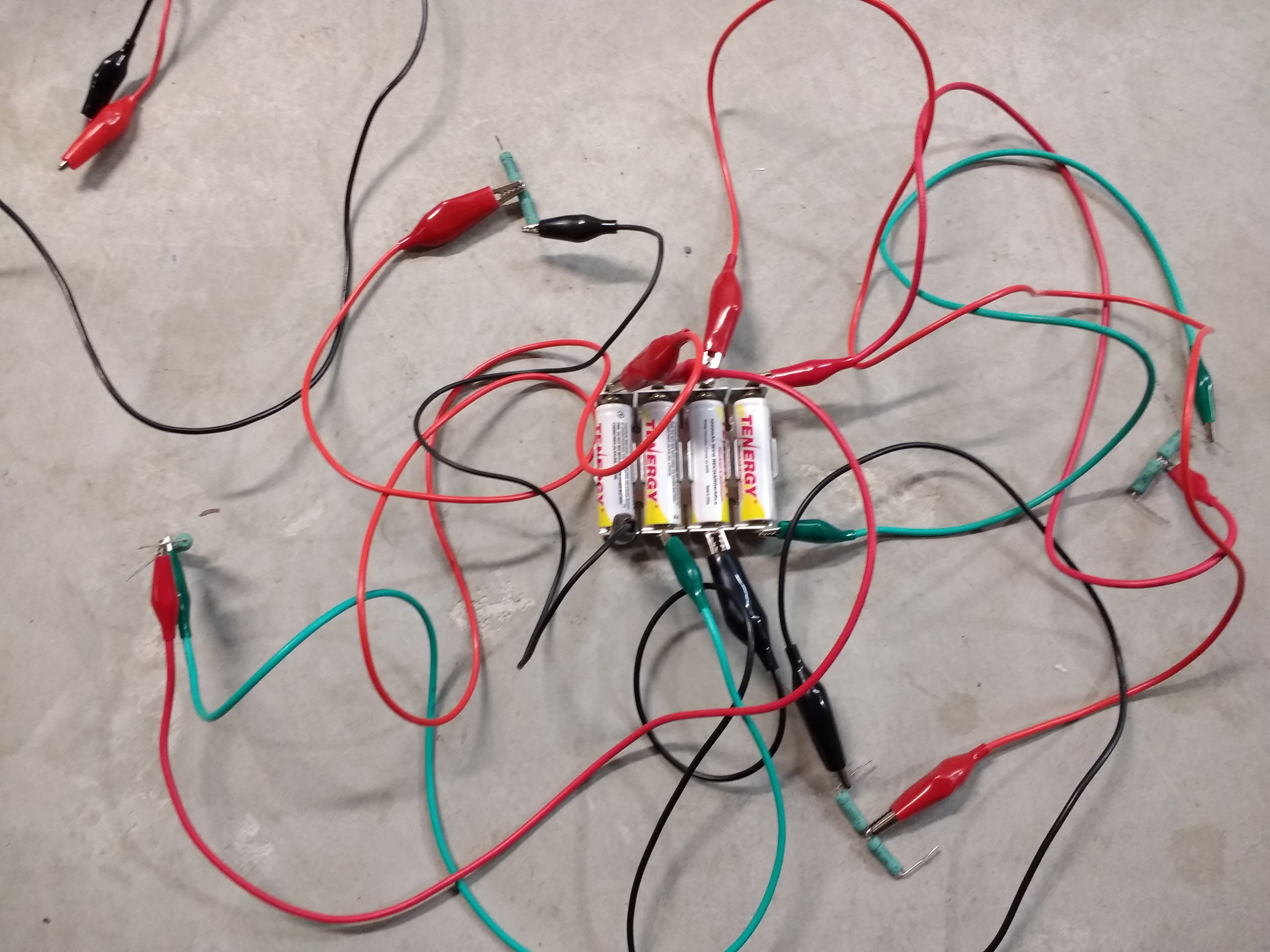Don't worry: they'll come back as zombies later.

I made some shorting bars for AA NiCd cells from 1.5 x 20mm aluminum stock. The slight curvature of the stock created by my shears makes a nice contact for the negative battery terminal. They've been shorted like this since yesterday. This ensures the cells are at a "zero" state of charge. To prepare them for shorting, I first discharged them fully with 3.6 ohm and subsequently 1.8 ohm power resistors:

The lousy clip leads probably double the resistance, but the cells did eventually discharge.
How dead are they?
I intend to use the NiCd cells as an intermediate storage for the energy drained from a coin cell, since they self-discharge much more slowly than supercapacitors (1% per day vs 20% in the first day). The energy will then be transferred (quickly) from the NiCd's to the capacitors, since the capacitors can discharge with enough power to start the car.
Even though the NiCd's have been shorted for a long time, it's natural to wonder if there is any charge left in them. I can hear people crying foul already. But, it's a legitimate question: what's left in a NiCd after it has been stored shorted?
I took two cells out of their shorting bars and tested them. I connected the first to a high-impedance DMM to test the open-circuit voltage. Over the course of a few hours, the voltage slowly rose from 0 to 1.047V. This probably won't convince anyone that the cell is empty.
I connected the second cell directly to a DMM on the 2mA setting, then measured the voltage across the cell. The current crept up to 626uA, while the voltage rose to 65mV. This represents a power of 41 uW, which is ridiculously tiny.
To put this number in perspective, it would take 5 years to charge my 67F capacitor to 14V using a charging power of 41uW, assuming 100% efficiency and zero capacitor self-discharge. In contrast, I expect to charge the capacitor from the NiCd's in an hour or two.
My suspicion is that any minuscule residual charge that these measurements represent would eventually drain away during extended shorting. The open-circuit voltage recovery after shorting reminds me of dielectric absorption in capacitors: short a capacitor for a while, and the voltage will recover somewhat afterwards.
In any case, I'm not worried that there is any significant energy left in these cells. As an experimental control, however, I'll leave a set of identically shorted cells un-shorted while charging the others. Once the active cells have charged, I'll check how much the control set has recovered. I'd bet there won't be anything significant.
 Ted Yapo
Ted Yapo
Discussions
Become a Hackaday.io Member
Create an account to leave a comment. Already have an account? Log In.